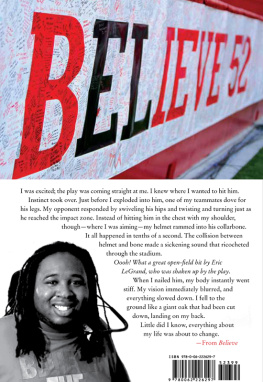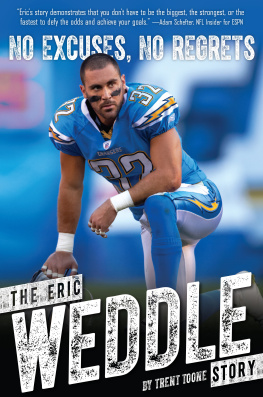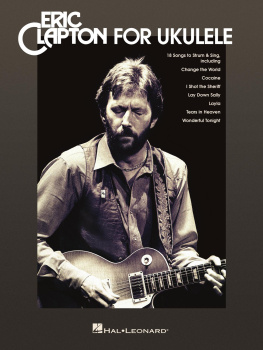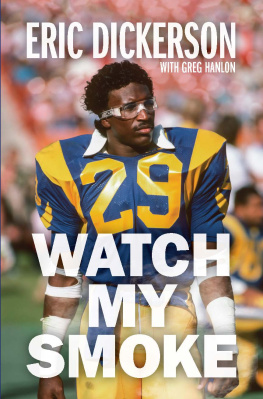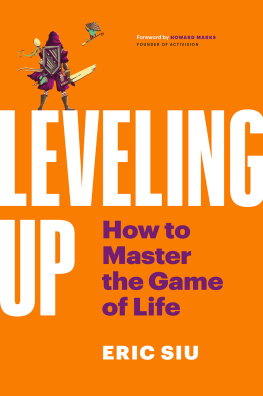S uffering a paralyzing neck fracture like I did and suddenly being confronted with so many health-care needs has been a daunting endeavor. I am beyond thankful for the support, encouragement, and prayers thousands of people have given our family.
For more information, visit www.scarletknights.com/believe.
The Lead-Up to Game Time
T he 2010 football season would be Coach Greg Schianos tenth at the helm of the Rutgers team, and while many Scarlet Knight fans appreciated how Coach had turned around a losing program that was once a national laughingstock, a vocal minority wanted to see a Big East conference championship year in and year out.
We didnt know what to expect for the 2010 season. Some preseason pundits were saying that we could be in a rebuilding year despite 85 and 94 seasons in 2008 and 2009, while others believed we could be a Top 25 team and contend for the Big East championship.
Which way would the ball bounce?
I knew our defense would have to carry this team, but I thought our D was up to the task. We ranked right up there with the top programs during my sophomore year: we were No. 2 nationally in turnover margin, No. 4 in sacks, No. 15 against the run, No. 16 in scoring, and No. 18 in overall defense (out of 120 teams). Coach Schiano had us in an aggressive mind-set, and he liked to pull the trigger with blitzes. There was a great spirit on our side of the ball.
Although I had played nose guard throughout my sophomore year, Coach Schiano tweaked my position for the new season. He put me into a three-man rotation with Charlie Noonan, who played nose guard, and my roommate Scott Vallone, who played defensive tackle. The three of us would rotate between nose guard and defensive tackle.
Under this new system, Charlie and Scott would start off and play four or five plays, and then I would go in as a nose guard with Charlie coming off the field. Then I would rotate over to Scotts position at defensive tackle and Charlie would come back in at nose guard. We were three men sharing two positions. It was innovative, kept us physically fresh, and forced opposing offenses to make adjustments for us.
Coach Schiano also decided to shake things up with the way we practiced. Every football team I had ever played on always practiced in the afternoon. Rutgers was no different. After morning classes, the players were expected to arrive at Hale Center at one oclock, where a box lunch would be waiting for us in our lockers. Wed eat, get dressed, and go upstairs for a team meeting. Coach Schiano would talk about the practice the day before and what we needed to accomplish that day. Then wed break up into a position meeting, where I gathered with other defensive linemen and defensive team coaches to watch film of our practice from the day before.
Talk about accountability. You could never loaf in practice.
Around 2:45, wed startwarm-up, practice drills, offense versus defense scrimmage, and conditioning work. Depending on the weather, we either practiced outside or inside under a bubble dome. Wed usually wrap up by 5:15or 5:30 at the latestsince a majority of players had night classes. After a dinner break, those who didnt have night classes were expected to attend study hall and watch film of our next opponent.
There was no chance for downtime with that schedule. It was go-go-go until nine oclock, when you could take a deep breath and wind down from the long day. It was a grind for the players.
Coach Schiano believed we were rushed throughout the day, and he was right. It did seem like we always had somewhere to go or somewhere to be. His solution: practice early in the morning.
Real early. As in starting-at-6- A . M . early. At first, my teammates couldnt believe that Coach was doing this. College students werent used to getting up at the crack of dawn. We were all night owls, and we all had friends who pulled all-nighters.
But six oclock was when we had to check in at the Hale Center for breakfast. After we were finished eating, wed head downstairs to the locker room, where we would dress for our 7:15 team meeting. And then practice would follow the same schedule that we had for afternoons. Wed be off the field by 11:30 or 11:45.
Coach was always thinking proactively and outside the box. He also stressed the importance of giving back to the community, asking each team member to volunteer his time for a worthy cause.
Beau Bachety and Devon Watkis chose to volunteer their time visiting children at Robert Wood Johnson University Hospital and Saint Peters University Hospital in New Brunswick. They wore their scarlet Rutgers jerseys and called on brave children fighting life-threatening diseases like leukemia. Our players liked hanging out with the children, autographing Rutgers T-shirts, and posing for pictures. I hear they did an awesome job.
I chose the Special Olympics as my cause. During the summer leading into my junior season, I was among the twenty-six Scarlet Knights who helped kick off the 2010 Special Olympics with the opening ceremonies at the College of New Jersey (TCNJ). Each player walked with special athletes from the New Jersey county he came from: I was representing Middlesex County, so I accompanied a handful of participants from near my hometown. (If you were a Rutgers player from outside New Jersey, the organization assigned you to a county.)
Coach Schiano served as the honorary coach for Special Olympics and delivered an inspirational speech to open the games. Being part of the Special Olympics meant a lot to me because I felt we were changing lives. The participants looked up to me as an athlete in my red No. 52 jersey. Despite their physical limitations, they were willing to get out there and do their best. I loved their smiles, and from that summer on, I decided that I would always be a Special Olympics advocate.
Just one year later, Coach Schiano was unable to make the opening ceremonies because of a family conflict. I filled in for Coach and led the opening ceremony parade into the stadium, after which I addressed the athletes and their families from a stage lined with yellow mums.
This time, though, I spoke from my wheelchair.
Early Birds
There was a lot of grumbling among the players about moving practice to early mornings. When that alarm clock went off every day, I wanted to shoot the thing. But once I got going, got some breakfast in my stomach, and suited up for practice, I had a lot of energy to take on the day. And when the horn blew to mark the end of practice, that was the best feeling, too.
I didnt have classes until 5 P . M ., which gave me a good four to five hours to do whatever I wanted to do: go to study hall, watch game film of the other team, hang out with Rheanne, or go home and play FIFA the video soccer game and my new favoriteon my Xbox 360. Or I could take a nap. There were days when I needed a refreshing snooze.
As a junior, I lived off-campus with Devon Watkis and Khaseem Greene, a linebacker from Elizabeth, New Jersey. We leased a house where I had my own bedroom and a nice queen-sized bed. Oh, and I should mention my first flat-screen TV, which Mom and Nicole got for me as an early birthday present. Getting our own place was a good way to teach me to manage my money because I had to help with the bills.
Even though there were changes in my lifepractice times, my responsibilities on defenseone thing was constant for me with Rutgers football: my role on special teams. I heard Coach Schiano tell his assistants that my abilities on kickoff and kickoff return were assets that he didnt want to take away from the team. I was our main man, the guy running down the field cracking heads and making a statement. I had always loved special teams and the camaraderie among us. Theres no other place I wanted to be when we were kicking off or receiving. Special teams were my forte.

